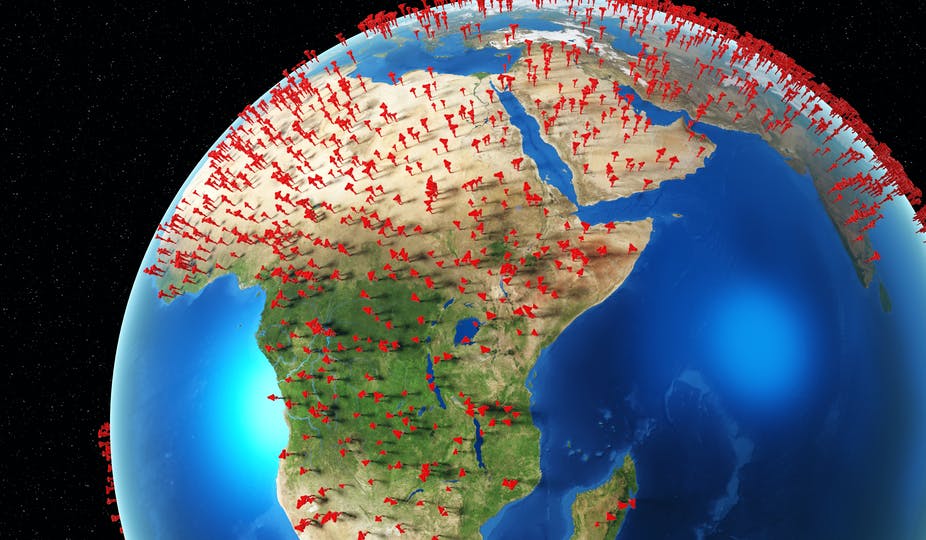Nigeria’s History With Pandemics
In this analysis, Ayokunle explores the country’s history and method of dealing with pandemics and outbreaks, the lessons learned and how they have been repurposed to tackle the novel coronavirus.
by Ayokunle Odekunle
On February 27, 2020, an Italian expatriate working in Nigeria who had arrived in Lagos from Milan, Italy made the record as Nigeria’s first index case of the novel coronavirus. A few days later, a second index case was confirmed in Ogun state, unsurprisingly, by a Nigerian who had made contact with the Italian.
But following the rapid response that followed both of these cases, it appeared Nigeria had everything under control.
This proactiveness; the immediate isolation of both paitents, and the development of a wide reaching communication plan to keep Nigerians aware, seemed to be in contrast to how the virus was being handled in many other parts of the world. Originating from Wuhan, China, the novel coronavirus has long since become a global problem. One that continues to disrupt our sense of noramlcy and forces us into unfamiliar and restricted ways of being.
Today, Italy continues to report thousands of deaths while in the U.K, the death toll is now more than 1,000. While there were concerns about how Africa would handle a crisis of this magnitude, there were also speculations about the virus not being able to survive in tropic regions.
Those speculations were disproved and Nigeria, Africa’s giant, has gone from three index cases to over 80 confirmed cases in three weeks. It is important to state that after reporting the first three cases, the Nigerian Center for Disease Control remained upbeat about Nigeria’s chances of handling coronavirus.
During an interview, the head of the Nigeria Centre for Disease Control (NCDC), Chikwe Ihekweazu told CNN: “We successfully managed Ebola and we manage outbreaks all the time and are currently managing Lassa fever. We have a strong team that is used to doing this.”
Nigeria’s early optimism is rooted in its success at managing the 2014-2016 Ebola virus pandemic. The virus caused 11,323 deaths across Africa. While it caused socio-economic disruption in Guinea, Liberia, and Sierra Leone, the impact in Nigeria was small.
But a look at how Nigeria managed the cerebrospinal meningitis epidemic in 1996 shows that Nigeria’s response to epidemics has not always been commendable.
1996 cerebrospinal meningitis outbreak kills 11,700
In 1996, Nigeria recorded one of the most serious cerebrospinal meningitis outbreaks in Africa with 109,580 recorded cases and 11,700 deaths. According to this paper: “The severity of this epidemic yet again underscores the need for a clear policy regarding control measures aimed at forestalling future epidemics.”
It took three months to bring the epidemic under control, with contributions from the WHO, UNICEF, MSF, the International Red Cross, and Nigeria’s health ministry.
Yet, one of the fallouts from the crisis shows two common Nigerian problems: government corruption and weak institutions.
During the meningitis epidemic, the pharmaceutical company, Pfizer conducted a clinical trial of its drug, Trovafloxacin on 100 children without approval. 11 children died as a result of these trials and a government report, which was not released for five years called the trials a “clear case of exploitation of the ignorant.”
While Pfizer agreed to a $75m dispute settlement, many aspects of the affair still remain unknown.
Although this represents a low in Nigeria’s handling of epidemics, 2014 was the year of redemption, thanks to the country’s effective handling of the Ebola virus.
Beating The Ebola virus
In July 2014, in Lagos, Nigeria recorded its first case of Ebola. The first index case was a Liberian-American, Patrick Sawyer who flew in flew into Lagos from Liberia. He arrived at the airport ill and was treated by Dr. Stella Adedevoh and her team of Nigerian doctors. Despite their best efforts, Patrick Sawyer died five days later and Dr. Stella Adedevoh also died of the virus. Their deaths set off alarm bells around the continent.
It was not without cause: in three other African countries, over 700 people had died in five months.
But Nigeria defied expectations and was declared free of the virus by October 2014. The containment was a result of several factors: a fast-thinking government and the localization of the virus on the African continent.
According to The Conversation: “At its core was the system Nigeria had developed for its war against polio and lead poisoning. The deputy manager of the polio campaign was brought in to head the Ebola response team and operations were rapidly scaled up.”
Contact testing was quick and all ports of entry into the country were monitored with airport officials checking the temperature of travelers. Despite the important learnings from the Ebola pandemic, one thing is clear, the novel coronavirus is different in many ways. For one, little is known about COVID-19 except for how easily it spreads and one of the things which have made it difficult to contain is that it is possible to test positive for the virus yet show no symptoms. Now, Nigeria, like many other countries in Europe is on the back foot and in hindsight, it is proving to be bad judgment to have been too confident.
With evident warning signs, the government still took weeks to implement a travel restriction and when the restriction was announced, it only applied to countries with over 1000 confirmed cases. Land borders were also left open, and with Nigeria’s porous borders, it was only a matter of time before the country reported its first confirmed victim who entered into the country through a land border.
But the most obvious way by which Nigeria has expressed strange confidence in handling the crisis is how slow it has been to scale up its testing processes. At the moment, the country has tested less than 500 people for coronavirus.
Nigeria is not only failing in its handling of coronavirus, but it is also failing to contain another epidemic: Lassa fever, which at present has seen over 900 confirmed cases in 2020 alone.
Nigeria reports 774 cases of Lassa fever in 2020
While Nigeria’s handling of the Ebola virus is commendable, the Lassa fever epidemic is a pointer to the fact that with disaster management in Nigeria, proper handling is the exception, not the norm. One of the difficult aspects of Lassa fever is that it is difficult to make a diagnosis: in up to 80% of cases, the fever is asymptomatic. It is also similar to many other infectious diseases.
Beyond the nature of the disease, a major problem is that Nigeria has very few diagnostic facilities across the country. There are only five diagnostics centers in Nigeria. While there is an effective drug that appears effective in combating Lassa fever, an absence of early and large scale testing means Nigeria will continue to struggle.
There have been four Lassa fever epidemics in Nigeria in the past five years. But a more troubling stat is that in 2020 alone, Nigeria has recorded 774 cases already. In 2019, it recorded a total of 810 cases.
Between January and March 15, the NCDC reported 161 deaths of Lassa fever patients. This led to calls for a declaration of a health emergency by the Nigerian Academy of Science.
The President of the Academy, Professor Nosto Onuoha said: “Nigeria must take positive and sustained action to prevent and control Lassa fever and not wait until more fatalities are recorded as a result of the yearly occurrence”
Yet the government’s response to the latest Lassa fever outbreak has been slow. Despite high mortality rates, it has not received attention, thanks to the outbreak of coronavirus.
It points to what this paper on epidemic disease outbreak reporting in Nigeria calls a pattern of government being “unwilling to rapidly report outbreaks or under-report the scale of the outbreaks.”
It is the kind of outcome Nigeria will want to avoid with its handling of coronavirus, with the NCDC admitting that it does not have the infrastructure to scale up testing.
The agency has also not disclosed how many test kits it has and without large scale testing, Nigeria might be heading to another shabby handling of a deadly pandemic.
The President’s announcement on Sunday night is the first of many difficult steps in tackling the virus and in the coming weeks, it will be crucial to see if Nigeria will recover from its slow start, like the rest of Europe and realize the height of the challenge before us.
–
Ayokunle Odekunle is a lawyer with expertise in handling commercial transactions and litigation. He doubles as a communications strategist that focuses on crisis and reputational management.





